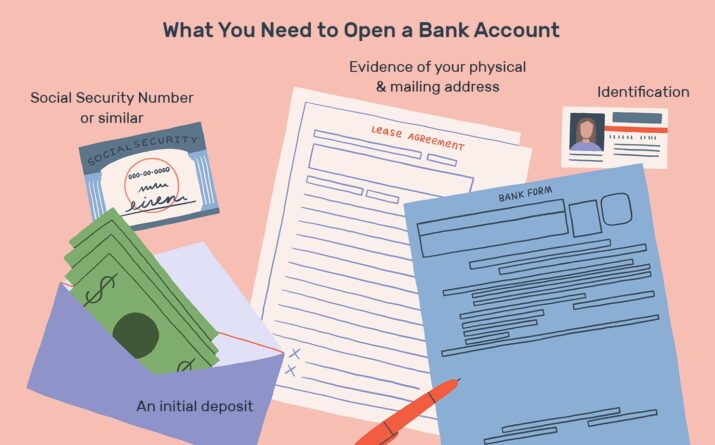How To Start A Small Business At Home

Many solopreneurs are looking to own private businesses right at their homes. Thanks to high-speed internet and various online platforms, opening a small business has never been easier before. Today, one doesn’t need to rent a commercial property to brand or market their product/service and make sales. Home-based ventures can include an e-commerce store, digital marketing service, virtual assistance (VA), freelance writing, and online tutoring, just to name a few.
Starting a small business is not for everyone – only those with the grit to outlast social pressures and self-confidence can achieve this remarkable feat. Other qualities of fantastic solopreneurs include passion, work ethics, creativity, flexibility, adaptability, self-reliance, organizational skills, and more. If you have any of these or similar characteristics, you’re good to go for creating an environment where you can call all the shots. Around half of the U.S enterprises are already home-based.

Photo: optinmonster.com
Before we discuss how you can create your company at home, let’s be clear on one thing. Although it can help you achieve the required flexibility in making a living or spending your time, establishing a micro-enterprise doesn’t guarantee financial success. Running a business, no matter the scale requires long-term commitment, not to mention a clear understanding of the entire process.
Here’s the detailed guide to help your start your own private small business at home:
① Determine your Talents and Skills
Depending on your talent and skills, you can develop a suitable idea for your home business in your area of interest. Think about the things you’re naturally good at. This exercise will provide you with a clear picture of your personality traits and determine whether or not you’re a good fit for enterprising.
Before you finalize a business idea, know what type of person you are; are you a creative, detail-oriented, quick learner, or a good communicator? What skills you have in store; while talents are naturally in-born, skills are what you can learn with time. For instance, if you’re a detail-oriented person, you can spend time learning organizing or accounting skills.
② Come up with a Viable Business Idea
Combining your talents and skills can help you generate an appropriate business idea. The skills you have learned over the years based on your innate talents will mostly decide when finalizing a viable home business plan. So, if you’re a great communicator with impeccable English language speaking skills, you can start providing personal assistance services to foreign businesses.
There are hundreds of small business ideas out there, from dropshipping to freelancing, vlogging, copywriting, cooking, virtual assisting, affiliate marketing, and more. However, you cannot choose a random idea and dream of building a fortune out of it. The final idea you choose must resonate with your interests, talents, skills, and abilities. This will help you narrow down your search for the best home business idea you’re truly interested in pursuing.
Alternatively, if you’ve been working full-time or part-time for someone else before, you can identify core skills, which enabled you to come with concrete results in your previous job. Think of the unique cases where you could add value to the company’s processes and make a difference. You can also think of anything that interests you in a special way, such as your hobbies that can be valuable to others.
③ Evaluate your Business Idea’s Credibility
You can think of tons of small business ideas that could interest you; however, not all of them will work as home-based ventures. Multiple external factors could impact your proposed idea, including location, legal restrictions, licensing, zoning, and others. For instance, you won’t be able to open up a manufacturing business in a residential area, which would require a dedicated manufacturing unit and a warehouse.
④ Identify your Target Market
Once you’ve sorted out a business idea, you must identify your target market, a specific population segment that will buy your product or service. Start with creating customer personas, a fictional representation of a particular client type. This is done based on prospective clients’ interests, demographics, product objectives, pain points, personalities, and other related factors.
⑤ Define your Business Strategy
Based on your offering, you must determine which customer personas best fit your business model. These client personas will help you develop your business strategy; instead of targeting everyone, it’s best only to market your offering to your potential customers. More importantly, create your unique value proposition by incorporating vital things, like your clients’ needs and preferences, your top capabilities, and what your competition is doing.
⑥ Test your Product or Service
This is the most critical phase of your new home business venture. Until you test your new offering in the market, you should be extra cautious about its release. Test your business idea to see if your prospective customers are even interested in buying from you. Avoid your family, friends, and others in a closed circle while testing the product/service to avoid bias.
The following are some useful ways to test your new product or service:
① Introduce Beta Product/Service
 Photo: netsolutions.com
Photo: netsolutions.com
Customer feedback is the most important factor that could help you determine the success of your new business idea. Depending on your offering, find your beta clients online or a physical space to test market your product or service on a small group of people. The goal here is not to make money, but to get valuable customer feedback, so do not hesitate to offer hefty discounts to your potential customers.
② Work Part-time
If you’re currently working somewhere but also want to make serious money out of a side hustle. In that case, you can work part-time to test market your offering to determine the viability of a new business venture before quitting the job.
③ Offer your Product/Service for Free
If you’re offering a technical service, you can always find potential clients and offer them your free service. If they liked your work, they will most likely work with you again and become your full-time customers. Not only that, but you can also gain valuable experience, learn new things, build on your existing portfolio, and get yourself some positive online reviews.
④ Try a Crowdfunding Campaign
When you’re in the early stages of creating your product, you can benefit from a crowdfunding campaign. This way, you can presell your items to raise considerable money. If there’s a market for your offering, you can use that money to accelerate the production or else use it for testing another business plan.
⑤ Choose your Business Name Wisely
Once you’ve figured out how good your product or service is, it’s time to choose a suitable name for your home business. Your company name is one of the most vital parts of your overall branding. The key is to choose a simple but not too vague name for your private enterprise. While you’re at it, create a stunning website and secure a Google My Business (GMB) listing as well.
Choose a name that resonates with your brand or what you’re selling in the market. Avoid using your own or one of the competitors’ names and acronyms. Last but not least, keep the website domain availability in mind. Alternatively, you can also use a business name generator online to create an appropriate name for your home business.
⑥ Decide your Business Legal Structure
After you’ve decided on your home business name, it’s time to select an appropriate legal structure for your micro-enterprise. A sole proprietorship may be the right option if you want to get things started without hassle. In this business model, you hold all the keys to your business operations as you are the sole owner of your home business.
⑦ Register your Business / Fulfil Licensing Requirements
To conduct a home-based business, you will have to complete all the requisite local permits and licenses to operate your new venture in your area legally. Check with your local/state government zoning ordinances and other regulations and register your small business before starting the operations.
⑧ Open up a Business Bank Account
 Photo: thebalance.com
Photo: thebalance.com
Setting up a bank account for your home business is crucial as it helps to keep your private finances from the ones related to your small company. Make sure to choose a local bank operating near your residence to open up a business account and establish long-term relationships with them. Many solopreneurs vouch for small regional banks as they quickly respond to their business clients on short notice.
⑨ Manage your Finances
In order to kickstart your home business the right way, you will need to estimate a sizable amount of financing first. Since you’re going to rent an office or store, your major finance requirements will most likely be in the domain of equipment and marketing.
Depending on the nature of your micro-enterprise, you’ll need to invest in specialized tools. For instance, someone starting a YouTube Vlog will require fast internet, equipment, including a laptop, microphone, headphones, video editing software, and more.
⑩ Set up your Home Office
For those working from home during the COVID-19 pandemic, you must know how important it is to set up a dedicated home office to complete daily tasks. If you have a spare room at your house, you can take advantage of this space and use it as your home office to avoid distractions. Choose a spot that receives an ample amount of natural sunlight for improved productivity.
All in all, a perfect home office must fulfill certain needs, including good lighting, right tech, quality seating, stationery, other supplies, reliable flooring, and ergonomics requirements.
⑪ Outsource Secondary Tasks to Freelancers
Irrespective of the size of the business, running a company successfully requires certain people to work as a team. Conduct telephonic interviews to assemble a dedicated team of experts for secondary tasks you would otherwise have to do yourself. Hiring freelancers will help you save money in the long run as you don’t have to bear fixed costs, like salaries, benefits, payroll taxes, and other expenses.
⑫ Secure Funding and Focus on Growth
 Photo: articles.bplans.com
Photo: articles.bplans.com
Once you’ve sorted out all the matters mentioned above and things have started to click, it’s time to secure additional funds to scale your small business. You can reach out to multiple sources to get much-needed funds, including self-financing, bank loans, crowdfunding, seed/angel investors, venture capitalists, and others.
Whichever funding source or a combination of funds you want to pursue, ensure to go for the option that best suits your business. Prepare a detailed growth plan for your micro-enterprise and pitch your business proposal to the source accordingly.
Conclusion
In a nutshell, starting a small business at home takes a considerable amount of research and continued effort. You’ll have to take care of many things like having a workable business idea, making the right plan and business name, acquiring licensing, outsourcing tasks. Make sure to build something you are passionate about; only then you’ll be able to invest your time and money in it per your strengths and capabilities.


